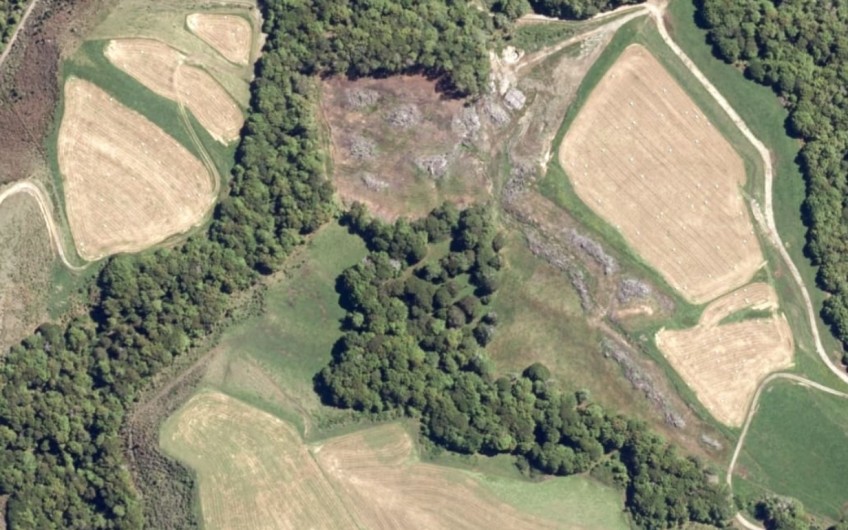Farmer fined $98,000 after clearing native bush to sell as firewood

A Murchison farmer and his business have been fined $98,000 for clearing nearly 10 hectares of native bush to sell as firewood, from the remote Maruia Valley at the top of the South Island.
Hamish Reith and Ealing Farm Limited were sentenced in the Nelson District Court on four charges of breaching the Resource Management Act by removing indigenous forest from two properties on the Shenandoah Highway over a seven year period.
Judge Brian Dwyer said the offending first came to light during a consultant ecologist's assessment of the properties as part of a survey for the Tasman District Council in 2022.
The ecologist noticed indigenous forest had been cleared at one of the properties and reported it to council.
Then in 2023, a member of the public contacted the Ministry for Primary Industries to inquire whether a Murchison firewood company had a sustainable forest management plan to mill the indigenous beech wood it was selling, which prompted an investigation by MPI forest officers.
Reith was questioned and acknowledged felling the native forest on his properties with the wood sold in his commercial firewood business, having understood he was able to clear up to 2.5 hectares per year.
The Tasman Resource Management Plan (TRMP) says the destruction or removal of indigenous forest is a permitted activity on rural 2 zoned land, if the area removed is less than 0.2 hectares per site over a three-year period.
Hamish Reith and Ealing Farm Limited were fined $98,000 in the Nelson District Court for illegally felling indigenous forest. Photo: Supplied / Tasman District Council
Defence lawyer Ben Williams said Reith had identified his error and was "extremely embarrassed and apologetic" about what had happened.
Investigations found around 4.39 hectares of native forest was felled from one property in 2020 and 5.36 hectares from the other between 2016 and 2023.
Williams said efforts had been made to comply with the TRMP as the defendant understood it.
"Mr Reith's written English is not optimal so he did rely on someone he trusted in terms of the person he bought the business off and had been diligently going about his business for a number of years, thinking he was complying."
Williams described the operation as a "smaller mum and dad business" and said the court process had been stressful and unpleasant. The Reiths had since engaged with an ecologist to protect and enhance the remaining forest.
Acting for the Tasman District Council, lawyer Antoinette Besier said it was "simply not good enough" that the defendant did not know the rules.
"The defendant was a farmer but he was also running a commercial firewood business, so to rely on what he was told by the previous owner of the firewood business was not sufficient.
"If a check had been made of the district plan rules, it would have been clear what the permitted activity level was."
Some of the bush was referred to as primary forest, defined as "untouched and pristine" and Besier said the loss was significant, as there was only 25 percent of it left in the district.
She said there was a strong need for deterrence as the felling of native forest was a serious issue.
"Here we have a very significant habitat of mature podocarp that provides habitat for endangered bird species the kākā and the robin, some of these species will take a lifetime to regenerate, if at all."
In sentencing, Judge Dwyer said the defendants may have misunderstood the amount of native bush they were able to clear, but the offending was deliberate.
"Many of the trees exceeded six metres in height and it seems to me that the quality, the variety and the stature of the forest, at some stage should have given [the defendants] pause to say, 'this is obviously mature native forest, what are the rules' and to have checked."
The offending first came to light during a consultant ecologist's assessment of the Maruia properties as part of a survey for the Tasman District Council in 2022. Photo: Supplied / Tasman District Council
Judge Dwyer said it was a serious failure to have not done so, and Reith's culpability was high as a result.
From a starting point of $140,000 on all charges, a 25 percent discount for a prompt guilty plea was given, along with a 5 percent discount for previous good character, resulting in a total fine of $98,000.
Of that, 90 percent would be paid to the Tasman District Council. Reith was also ordered to pay $1535.94 for an ecological report sought by council and $520 in court costs.
Tasman District Council compliance team leader Dave Shaw said the offending was serious and enforcement action was taken to ensure deterrence.
"We have got areas of significant indigenous vegetation and valuable wetlands that are really important to our district and if anyone is thinking of clearing them, particularly with regards to any commercial venture, please do the due diligence, talk to the council and check out the planning regulations and take the appropriate advice so we can avoid this in the future."
The council had sought an enforcement order to protect the remaining forest and encourage regeneration where possible with the implementation of a restoration programme.






















